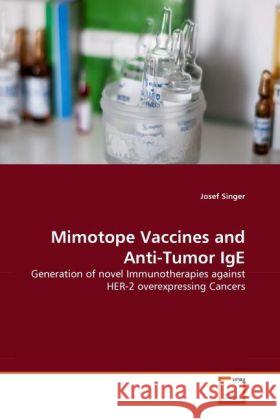Mimotope Vaccines and Anti-Tumor IgE : Generation of novel Immunotherapies against HER-2 overexpressing Cancers » książka
Mimotope Vaccines and Anti-Tumor IgE : Generation of novel Immunotherapies against HER-2 overexpressing Cancers
ISBN-13: 9783639262322 / Angielski / Miękka / 2010 / 72 str.
Mimotope Vaccines and Anti-Tumor IgE : Generation of novel Immunotherapies against HER-2 overexpressing Cancers
ISBN-13: 9783639262322 / Angielski / Miękka / 2010 / 72 str.
(netto: 208,74 VAT: 5%)
Najniższa cena z 30 dni: 219,18
ok. 10-14 dni roboczych
Bez gwarancji dostawy przed świętami
Darmowa dostawa!
Breast cancer is the most common malignancy in women worldwide. There are several options in the treatment of breast cancer, like chemotherapy or radiotherapy, which are unspecific and show numerous side effects. Therefore, cancer research has been aiming at defining targeted therapies. Among the most successful is Trastuzumab (Herceptin®), a monoclonal antibody targeting HER-2, which mediates malignant proliferation. Although Trastuzumab proved to be highly effective in clinical use, there are still some problems that have to be solved, concerning the stability in vivo, its distribution to immunoprivileged niches, the recruitment of distinct effector cells, its half-life and elimination and last but not least the immense costs of antibody-based therapies in general. This study focuses on optimizing these problems via two strategies: On the one hand via generating an anti-HER-2 monoclonal antibody of the IgE subclass, which shows advantages in the mentioned problem areas and on the other hand by turning the expensive passive immunotherapy into an economically attractive active one, namely via the usage of epitope mimics (mimotopes) for active immunotherapy.











